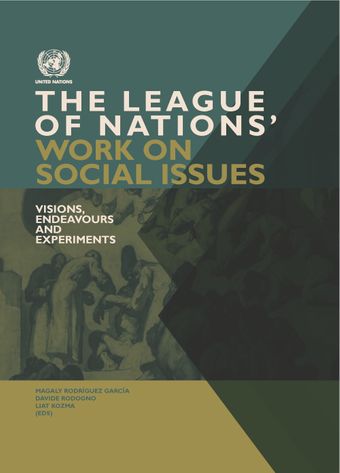Race problems, social issues: The Portuguese empire and the racial equality proposal, Paris 1919

- Author: Caio Simões Araújo
- Main Title: The League of Nations' Work on Social Issues , pp 31-44
- Publication Date: March 2016
- DOI: https://doi.org/10.18356/88ac524d-en
- Language: English
In the aftermath of the Great War, the problems of race and race-based discrimination became particularly contested and internationalised as both social and political issues. In this context, Japans campaign for the recognition of racial equality as a guiding principle in world politics, as well as the political controversy it unleashed at the Paris Peace Conference and elsewhere, dramatized some crucial problems of the time, including the internationalisation of colonial affairsand related expectations regarding the European civilising mission. This chapter approaches these debates from the vantage point of a relatively marginal and still understudied player: the Portuguese Empire. Conversations within the Portuguese delegation, I argue, demonstrate that the problem of racial equality had to do not only with anxieties over Asian immigration to white countries, but was also crucially entangled with the politics of empire and concerns with the effects of colonialism on African populations. The defeat of the Japanese proposal, I suggest, points to some of the limitations of the League of Nations and the forms of internationalism it promoted in the interwar period in particular, the neutralisation of racial equality (and inequality) as a social rather than political concern.
© United Nations
ISBN (PDF):
9789210577021
Book DOI:
https://doi.org/10.18356/43045dc7-en
Related Subject(s):
Economic and Social Development
Sustainable Development Goals:
-
From This Site
/content/books/9789210577021c003dcterms_title,dcterms_subject,pub_keyword-contentType:Journal -contentType:Contributor -contentType:Concept -contentType:Institution105
/content/books/9789210577021c003
dcterms_title,dcterms_subject,pub_keyword
-contentType:Journal -contentType:Contributor -contentType:Concept -contentType:Institution
10
5

